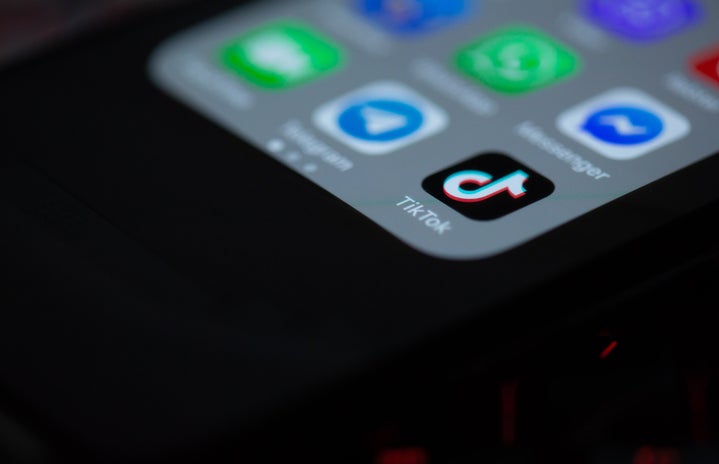A plea of compassion to those who hate women; a love letter for women. However, the sisterhood of solidarity is a mortal enemy of an immortal, lethal beast by the name of social media. It clutches womanhood by the jaws and the bones and guts and blood of struggling — a senseless constant attack of our existence. Misogyny, by definition, is an ingrained prejudice against women and modernity exacerbates this hatred through social media. This is not limited to but including, posting intimate images online without consent, revenge porn, threats of physical/sexual violence and aggressive language. Placing danger in women’s living rooms, burning them with a flame of sexism in their kitchens, imprisoning them in the workplace in suffocating Facebook groups and messaging forums. It’s an injustice that demands to be catered for, as it would be an alternate reality to click delete on the problem altogether. 1 in 3 women have experienced online abuse (according to Amnesty International), positing a detrimental effect to women’s right to safety, freedom of expression and participation in public life. Social media has worsened in global pandemics with traffickers using technology and loneliness to profile, remit control and exploit their victims – how then can teenage girls avoid the intelligible and darkest corners of social media?
Women’s liberation and awareness can be spread through traditional social media platforms, or voicing gender inequality and advocacy for change. So the good, is good, to be simply put. A lifeline for baby feminists learning the word for the first time, or a feel-good info post of all the affirmative action happening globally. However, the antithesis to this, can really be quite evil. Incel communities, for example, is a global culture online whose danger is seemingly minimised but is slowly creeping to a terrorist form of threat to women online. It’s no coincidence this has been linked to violent terrorism and classified by the government’s anti-radicalisation strategy Prevent as having a ‘mixed, unstable or unclear” ideology.
Male supremacist ideology online is not contained by the screens: ‘idolised’ Elliot Rodger killed six in California, Alek Minassian murdered 11 in California and Tres Genco attempted a mass shooting against women at Ohio university. When do we begin to sentence these views as codified extremism, as plotted devastation against women? When does social media begin to penalise these views as a threat towards women rather than a punishment towards male opinions? I implore you to read Men Who Hate Women by Laura Bates as further reading on the subject, as she delves into Reddit analogs and deep dives into the most rancid of the so called ‘Manosphere’ (trigger warnings include: extreme sexual violence and assault, misogyny, racism and gun violence).
Social media outlets such as YouTube offer a right-wing pipeline for young men to tunnel down, creating an arbitrary wormhole of women-hating platforms and groups, to threaten physical violence and test the waters of how far the extremity of their words can go unchallenged. Female harassment online can no longer be dealt as the superficial first look of the so-called iceberg; a news article criticising a woman’s cellulite or mean comments on a girl’s video just because she’s a girl, etc. It’s an icier, bone-chilling reality of an evolving subculture — they call to ‘slaughter’ us for the good of humanity, create serious ploys of mandated sexual violence to keep women in line and dox and oust female journalists for naming and shaming. Social media outlets posit little to no limitations to how far the reach of this extremism can go. My existence doesn’t depend on whether these misogynists believe in my existence, or my right to share a planet with them.
As one of the many examples of misogyny being worsened via social media is revenge porn, only recently being criminalised by the Criminal Justice and Courts Act 2015 and defined as the ‘sharing of private, sexual materials, either photos or videos, of another person, without their consent and with the purpose of causing distress’. This could be by an ex-boyfriend or a total stranger, but the ramifications on women either in a professional or social sphere are immeasurable. Cases are on a constant rise, as the Crown Prosecution Service charged 1048 offences between 2020 and 2022. Victims of the offences are often stalked or harassed — ¾ of cases involve current or ex partners. Before, communities deemed it distant attack on women, albeit morbid and heart wrenchingly dangerous, but still undiscovered by most women online. It’s quietly brooding, and you can shut your laptop and be done with it. Revenge porn happens in your bedroom. It strips you of your identity and tries to disparage you to family, friends, co-workers. It’s a battle against someone you know, someone you may have loved or trusted, or even someone who has merely spoken to you before but hasn’t been separated by the anonymity of online. Georgia Harrison, a reality TV star, talks revenge porn in recent documentary, making a case against image-based sexual abuse and waiving her right to anonymity in an effort to spread awareness and inspire. This particular high-profile case was against reality TV ‘star’ Stephen Bear, found guilty of voyeurism and two counts of disclosing private, sexual photographs and films; he will be forced to pay Georgia £207,900 from prison, the highest sum awarded in an image abuse case. This conviction will hopefully aid an attempt to add amendments to the Online Safety Bill and codify consent in sexual activities online.
Sexual offences like these may not have existed twenty, thirty years ago, and may not even be in your older family’s wheelhouse, but cannot be brushed under the rug.Dear those who have already been targeted by online sexist harassment, or future generations failed by a system that’s constantly evolving at a press of a button: I feel for you. Negativity might breach comfort in your home, but we will need to fight for more restrictions for the protection of women and hold the tech world responsible. What this looks like, I can’t even begin to wonder, but we can’t live in a world where a powerful misogyny is bubbling under the surface.



